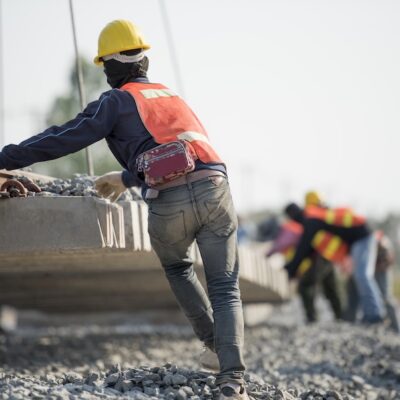Property developer sets sustainability benchmark
Property developer Stanley Tan has set a new sustainability benchmark for the sector by achieving B Corp certification, the globally recognised accreditation for environmental and social performance. According to latest […]
Property developer Stanley Tan has set a new sustainability benchmark for the sector by achieving B Corp certification, the globally recognised accreditation for environmental and social performance.
According to latest data, there are over 7,500 certified B Corporations in 80 countries around the world, including 308 in New Zealand, however, Sedar Properties is just one of a handful of property developers in the region to achieve the certification*.
Sedar Properties, which recently rebranded from GYP Properties, has residential and retail developments in East Auckland, South Auckland and Queenstown covering over 25ha.
Stanley Tan, Sedar Properties CEO, says that the construction and operation of buildings is responsible for 39% of global emissions globally, and that 20% of New Zealand’s emissions are attributed to the built environment.
He says they have achieved carbon neutrality and implemented sustainability programmes that aim to address their environmental and social impact, both directly and throughout their supply chain.
“We acknowledge that contributing to the development and regeneration of communities comes at a cost to the earth, and we are committed to developing an action plan to measure and reduce our environmental impact.
“In the building industry, there is increasing awareness at all levels of the development process, from finance through to our trade supply channels, of the sector’s environmental footprint. One area that is gaining increasing attention is embodied carbon – the emissions associated with the manufacture and use of a development, including construction materials, the building process, and fixtures and fittings.
“Whilst we are still far away from being able to calculate the total embodied carbon of our projects, our research has included investigating the use of lower embodied carbon building materials. As a result of an internal study, we are now looking for opportunities to introduce sustainably grown mass timber as an alternative to concrete structural components in our developments.
“Innovation is a key driver to improving sustainability, so we are also working closely with our sister company that invests in early-stage sustainability solutions for the built environment that could be deployed in our developments.
“Recycling programmes have also helped divert construction waste from landfill and a recently introduced organic waste programme at one of our retail properties is sending food scraps to a commercial composting facility annually, rather than landfill,” he says.
Tan says the introduction of the B Corp certification may introduce a new purchasing consideration for first home buyers.
“Historically, first home buyers looking to enter the market may have had to prioritise cost over environmental criteria. The certification may mean they will now be able to purchase a dwelling with the reassurance that the developer has met stringent social and environmental standards.
“We are wholly supportive of B Corp’s vision of an inclusive, equitable and regenerative economy and are proud to be part of a global community of businesses that believe in using business as a force for good.” he says.
* B Corp Certification is a designation that a business is meeting high standards of verified performance, accountability, and transparency on factors from employee benefits and charitable giving to supply chain practices and input materials






